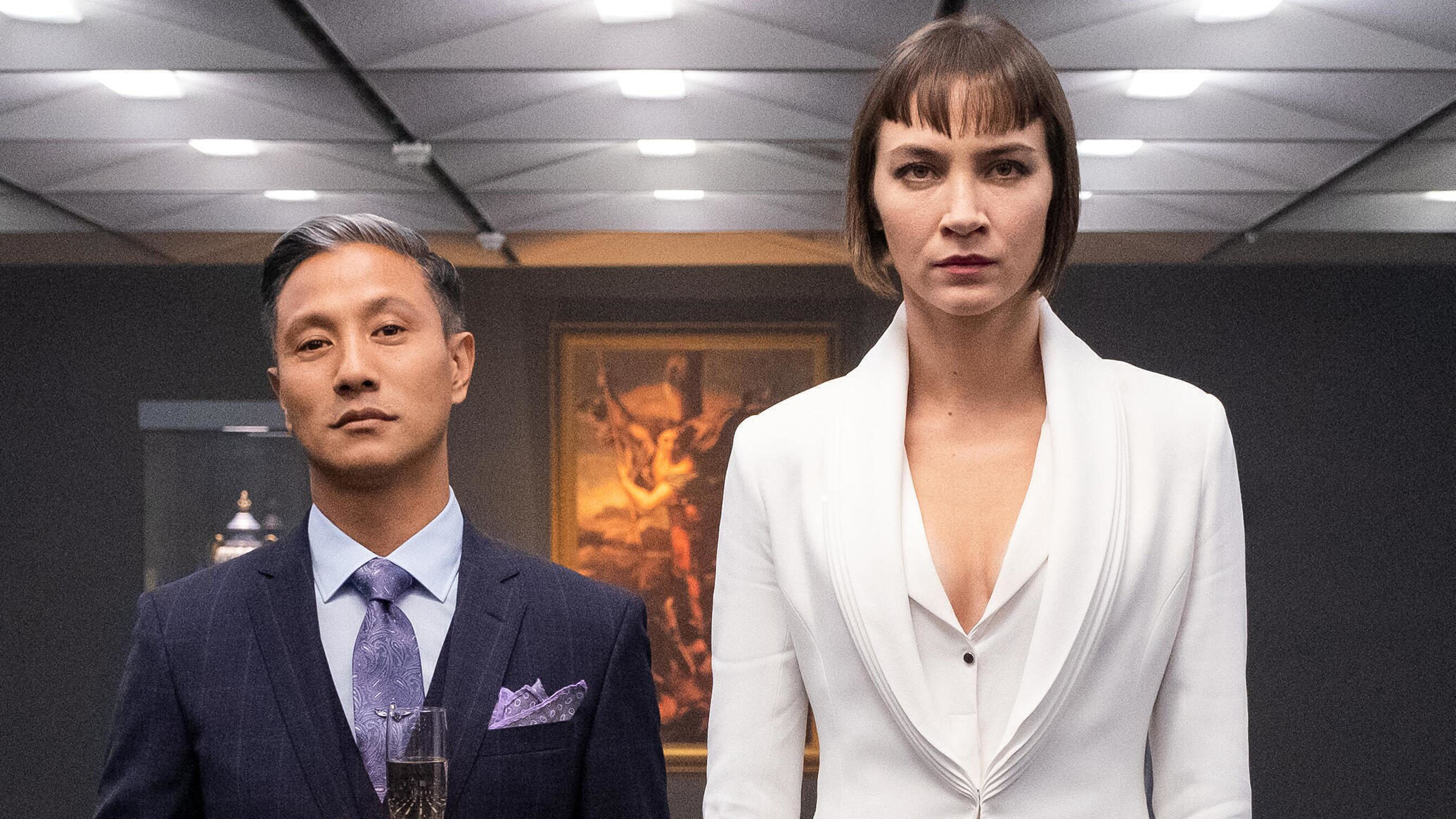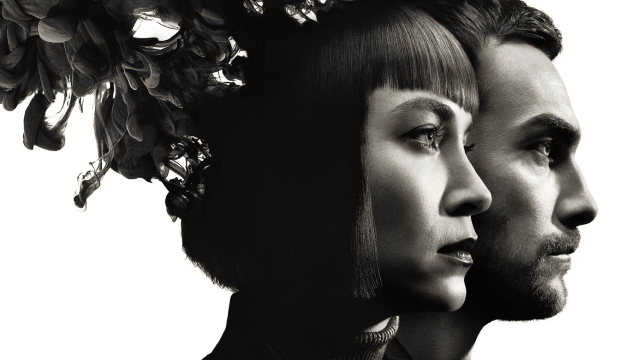Once upon a time, there was a multibillion-dollar multimedia corporation that dreamed of creating a wildly successful franchise of movies that could serve as backdrops for multiple spin-off series starring characters who were plucked from the source material’s same shared narrative universe. That corporation was Marvel, and one of those series is Hulu’s Helstrom.
Helstrom enters Marvel’s catalogue at a time when the company’s approach to live-action television has pivoted. Just as Disney+’s WandaVision and Falcon and the Winter Soldier are being set up to truly further expand the character arcs of different characters introduced in the films, Helstrom comes to Hulu as a reminder of how strangely siloed the studio’s other episodic productions like Runaways and Netflix’s various Marvel series were.
Though both magic and demons have already been established with the Marvel Cinematic Universe, the 10-episode Helstrom treats them as new revelations uniquely understood by its cast of heroes and villains. In another universe, the show’s focus on shadowy magics and ugly family drama might make it one of Marvel’s standouts, but here the series barely manages to make a strong argument in defence of its own existence.
Helstrom invites you to get caught up in the decades-long family drama that’s defined the lives of Daimon (Tom Austen) and his younger sister Ana (Sydney Lemmon) since they were very young. Before he became an ethics professor and she became an ultra-stylish auctioneer, the Helstrom siblings grew up in a tumultuous home in which their mysterious and abusive father eventually drove their mother Victoria (Elizabeth Marvel) to actual madness. Helstrom’s opening credits sequence functions as a disturbing, but surprisingly expressive depiction of its characters’ backstories, and clues you in to the series’ otherworldly nature that’s fundamentally tied up in the family’s dynamics.
Helstom very dramatically attempts to tiptoe around the exact nature of whatever darkness exists in Daimon and Ana’s past that split their family apart and led to their mother being institutionalised in a psychiatric hospital. Though for all the effort the series puts into trying to keep things mysterious, it’s all rather obvious from the jump what’s going on, regardless of how familiar you are with the Marvel comics.
In addition to challenging young minds to understand the difference between good and evil, Daimon also moonlights as a sort of demonologist who’s regularly called upon to perform exorcisms and other mystical rituals that the Vatican is aware of, but does not actively endorse (Helstrom’s not an ordained priest). Ana spends her days and nights handling the types of extravagantly expensive curios that bring out the wealthiest and most eccentric members of society, all the while knowing that her auction house’s wares also function as an effective lure for the kinds of dark-hearted souls she delights in murdering. In different ways, both of the Helstrom siblings live up to their family name by coming in close contact with the sorts of otherworldly presences that normal people believe only to be the stuff of fairytales and biblical stories.

Though most of the world believes the family to be normies, people like Louise Hastings (June Carryl), the woman who runs the hospital where Victoria’s being held, and the Caretaker (Robert Wisdom) have a deeper understanding of the occult and how the Helstroms are connected to an ancient evil that’s still threatening to engulf the world. Rather than full-on leading with an explicit recognition of demons and the supernatural, Helstrom instead tries to play coy in a way that doesn’t quite work because the show comes on the heels of other similarly oriented series like Constantine, Lucifer, and even Supernatural that have all more or less defined how creative teams tell these specific kinds of genre stories.
In every moment where Helstrom presents you with a possessed person or spotlights one of the siblings using their powers, it’s hard not to see the series as a late-to-the-game, pale imitation of its horror-tinged genre peers that have all been far more daring and to-the-point by comparison. The story’s vague gesturing towards psychological horror would be admirable if it ever ended up amounting to much, but because the series errs more on the practical, grounded side of things, it often ends up feeling like an uninspired spin on a story that’s been told before.
It’s a pity because, in small moments here and there, you can see how Helstrom’s characters and players could have been capitalised on much more effectively and used to carve out a space for Marvel’s first outing expressly aimed at a more mature audience. Lemmon’s Ana is a far cry from her comics counterpart’s overt ridiculousness, but she brings a steely lethality to the screen that feels as if it’s being underserved by Helstrom’s rather two-dimensional characterisation of Ana as a person. She’s vicious, queer, and comfortable with the shadowy things that go bump in the night, but again, she just feels like Marvel’s derivative go at the sort of witchy femme fatales causing problems on most magic-forward genre shows. Despite his heritage, Austen’s Daimon is far from devilish, and at times ends up sort of being overshadowed in scenes where he’s interacting with characters — usually demons — who are chewing up the scenery in one way or another.
Like Runaways and Cloak & Dagger before it, Helstrom introduces you to a new geographical chunk of the MCU — here, the Pacific Northwest — with its own connections to the Roxxon corporation. In nodding to the existence of the larger MCU, Helstrom does itself no real favours because it only draws attention to the way this story doesn’t feel like it’s going to be a particularly compelling and important part of this connected world.
Even when it’s trying its hardest to scare you, Helstrom feels like a nonstarter, and not simply because it doesn’t have a future in the big picture of Marvel things. You’d be forgiven for not immediately knowing that Helstrom’s a Marvel production, as the studio’s name has barely appeared in any of the promotional material, and watching the show, you can see that was probably by design, which…is telling.
The MCU could definitely stand to elevate more self-contained stories about lesser-known characters who might otherwise get lost in the sauce of a big-screen event. But shows like Helstrom are an example of the kind of energy the studio should avoid leading with if it goes that route.
